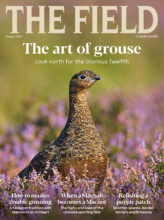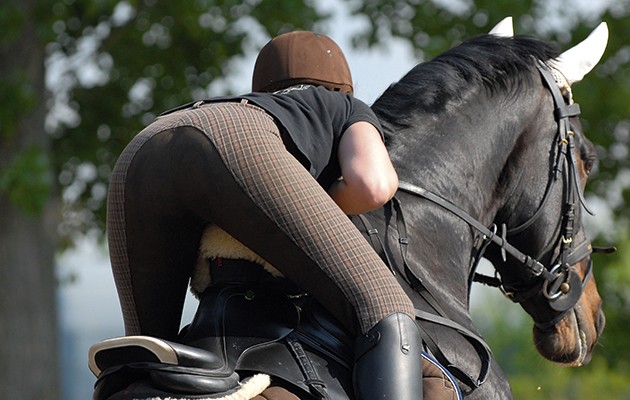Whether it’s Jilly Cooper’s Riders, Poldark or the Canterbury Tales, the best bonkathons are firmly rural. Jill Grieve deconstructs the rural bonkbuster genre
The rural bonkbuster has proven that the best naughtiness happens in the countryside. It seems that a rural, typically English setting is a requirement for that sort of fun. Jill Grieve looks at the rural bonkbuster genre and wonders what it is about the English countryside, our green and pleasant land, that makes the perfect setting.
For more countryside and less clothing, read The Field’s Naked Strewth. The Warwick Rowing naked calendar 2016 are back for another year, as are the Liverpool University naked charity calendar.
THE RURAL BONKBUSTER
Many have sought to emulate her but no one ever has or ever will write a rural bonkbuster quite like Jilly Cooper. To her readership she brings to life a sexually charged rural England (which exports beautifully), and a new novel is in the offing. But what is it about the countryside that led Cooper, and the many others in her wake, to make life there seem so very, very naughty?
Thirty years ago Cooper, already a journalist turning out racy copy about the pressures of working all day, getting dinner on the table and still having to be up all night exciting her husband, began the much-loved Rutshire chronicles with the publication of Riders. “Sex and horses: who could ask for more?” wondered the Sunday Telegraph. Who indeed? We continue to be enchanted by Rupert Campbell-Black, the “handsomest man in England”, Old Harrovian, unreconstructed toff, cultural illiterate, serial bed-hopper who is great with horses and women, unrepentant shit and godfather to every Fiona Walker, Zara Stoneley and Tilly Bagshawe chick-lit hero that has come after.
The horseflesh, the sex that is usually referred to as “bonking”, the tight jodhs, the rapaciousness of those who love country sports – the rural bonkbuster is enjoyable in a way that is fun but never threatening or seedy. Those of us who turned back every page of the saucy bits cheered Tatler’s ringing endorsement of Cooper as “the patron saint of Gloucestershire, awesomely good company and widely recognised as the nicest woman on the planet”.
Much has been written about who Rupert Campbell-Black is based on, and Cooper has been typically cheerful and open about it, saying, “When I moved to Gloucestershire in the early 1980s, I met this amazingly glamorous group of men: Andrew Parker-Bowles, Mickey Suffolk [Michael, Earl of Suffolk], Rupert Lycett Green and David Somerset [the Duke of Beaufort].” She makes it plain, however, that Rupert’s “shittiness was entirely my invention, I hasten to add, and had nothing whatsoever to do with their behaviour”.
Riders was a rural bonkbuster very much of its time, with Eighties excess and hedonism spilling out of the pages like the heroines’ bosoms from their Wonderbras. The original cover, with Rupert’s hand cupping a pert buttock, was recently the subject of outrage as an anniversary reprint shows the hand farther up on the hip. Cooper wasn’t impressed, commenting, “I adore my publishers, we have not had a cross word in 40 years, but I was shocked when I realised how they had cleaned up the jacket. We have become so puritanical!” For my money the hand is still very much on-cheek but the attendant anti-prude publicity will have done summer sales no harm at all.
FROM PAGE TO SCREEN
Surprising, though, to be reading about claims of prudishness when the rural bonkbuster has leapt from the pages on to the screen, which in 3D is quite something. Poldark, based on Winston Graham’s novels from the Forties and set in Cornwall in the 1780s, has done wonders for the lusty rural bonkbuster novel, with plenty of bodice-ripping and damask-draped four-posters. Incidentally, the enduring image of the first series is of actor Aidan Turner’s scything technique, which came under fire from those who know about such things but was merrily accepted as accurate by those of us who weren’t looking at the scythe. Again, the whole debate highlights the genuine gleeful delight of the rural bonkbuster genre, which fixates on good looks and fanciability rather than anything particularly deep or dark.
There’s darker fare in the on-going Game of Thrones saga, which merges fantasy with bodice-ripping. The series brings to the fore the rural bonkbuster conundrum of “who’s on top?” In the time of Riders it was clearly the boys, whether they were asserting power or offering sexual tutorials. The girls, including Cooper’s ingénues Helen, Fen and Tory, were all at sea to start with but were brought on by the boys, just as nervous horses would have been. Thirty years later characters such as Daenerys, Margaery and Cersei in Game of Thrones are players in their own right. The fact that, according to the Office of National Statistics, there are 53 babies called Khaleesi (Daenerys’s title in Game of Thrones, meaning “Warrior Queen”) being weaned across the country right now is testament to the appeal of the character. The sisterhood can hold its own and, it seems, its men’s.
Former Game of Thrones bod Richard Madden has just starred in a new adaptation of DH Lawrence’s at-the-time incendiary novel, Lady Chatterley’s Lover. The novel, subject of a trial under the Obscene Publications Act 1959, came at a time when social attitudes were changing. When chief prosecutor, Mervyn Griffith-Jones asked if it were the kind of book “you would wish your wife or servants to read” he was ridiculed. You can almost imagine the Earl of Grantham in Downton Abbey agreeing with Griffith-Jones that publishing stuff that might titillate the lower classes and give them ideas is not the thing. Neither man would appreciate a rural bonkbuster, especially since the majority of them are penned by women. Nor would they appreciate that while Lady Chatterley drew, as Downton does, on the hierarchy of the class system, sex transcends class and politics. I refer you to Rupert Campbell-Black and Dizzy the groom or Hilary the token lefty with the hairy armpits – he was never one for being too fussy and that is rather the point of the rural bonkbuster.
THE RURAL BONKBUSTER MEN
But Rupert was hardly the prototype. Attractive, morally dubious (and sometimes morally upstanding) men have been peppering rural literature for hundreds of years, be they Tom Jones seducing Molly George in the 1749 novel The History of Tom Jones, A Foundling by Henry Fielding, sex pest Alec D’Urberville’s antics in Thomas Hardy’s 1891 Tess of the D’Urbervilles or George Wickham, the heartbreaker who gets away with it in Pride and Prejudice, Jane Austen’s admittedly non-bonkbuster of 1813, but themes of seduction and passion were certainly all there.

Even Jane Austen’s Pride and Prejudice has themes of seduction and passion similiar to a rural bonkbuster.
To take it back even further, to Chaucer’s Canterbury Tales, written during the Hundred Years War, themes of lust, adultery and “swyving” (no prizes for guessing what that is) are as fresh now as they were then. Both Chaucer and Cooper understand people, their urges and the humour to be found in them.
RURAL ENGLAND: THE PERFECT SETTING
Why are readers, urban and rural, partial to a bonkathon and why are so many set in the shires? The opportunities the great outdoors provide for errant behaviour are a factor. Blue-bell woods, dark valleys and high-growing wheatfields, even horseboxes, provide cover for our heroes and heroines to indulge. And then that great literary arc and giver of double entendre, the rhythm of the seasons. The budding, bursting, reaping and abating is sexual athletics to a tee. The countryside provides something primal and makes it easy to describe human relationships, whether of buxom milkmaids, randy rakes or repressed squires. It is also true that people are at one with themselves in the countryside in a way that can never be true of people in the cities, removed from nature, the seasons, and the rising sap.
The countryside has cornered the sexual market. There is a good reason that, for many, MFH stands for something other than Master of Foxhounds, jockeys enjoy a dizzying sexual reputation, Young Farmers are legendary and the nod-and-a-wink offerings of rural dating services such as Muddy Matches reflect the thrill and fun of the chase far more than the antiseptic Tinder app ever could. Country life is lived fully, wildly, and not online.
The country sports elements of the modern-day rural bonkbuster, and the fun to be had, are what set them apart from the older rural publications, which sought to say something meaningful. Nowadays fun is for fun’s sake. Fans of Cooper or Fiona Walker, for example, fall into different camps: those who know about a day in the field, the smell of leather, the taste of a stirrup cup, the thrill of having half a ton of overexcited horse under you, and those who think they might like to. Either way, the readership of the rural bonkbuster genre is extensive, devoted and keen for the next instalment.
Being on the side of the fox, Cooper is not a fan of hunting, yet her heroes do it, and she fully appreciates its sexiness. Many of her drearier, lefty characters disapprove of the perceived privilege and frivolity of hunting, while she has always painted it as glamorous and colourful. The idea that Rupert Campbell-Black met his first wife, Helen, while he was out hunting and she was out sabbing proves the point. The thrill and excitement intoxicated Helen and though the relationship was uneven at least they were both beautiful.
With Poldark coming back for a new season, millions still in the grip of Game of Thrones and a new Cooper in the offing, the rural bonkbuster genre is alive and well, but what next?
Naturally, the question is “does every county have a Rupert Campbell-Black?” Emphatically, yes. All counties have good-looking young Masters and huntsmen, handsome keepers and plenty of opportunity for bad behaviour and epic puns, grist to the mill for current and future writers of the rural bonkbuster genre.









